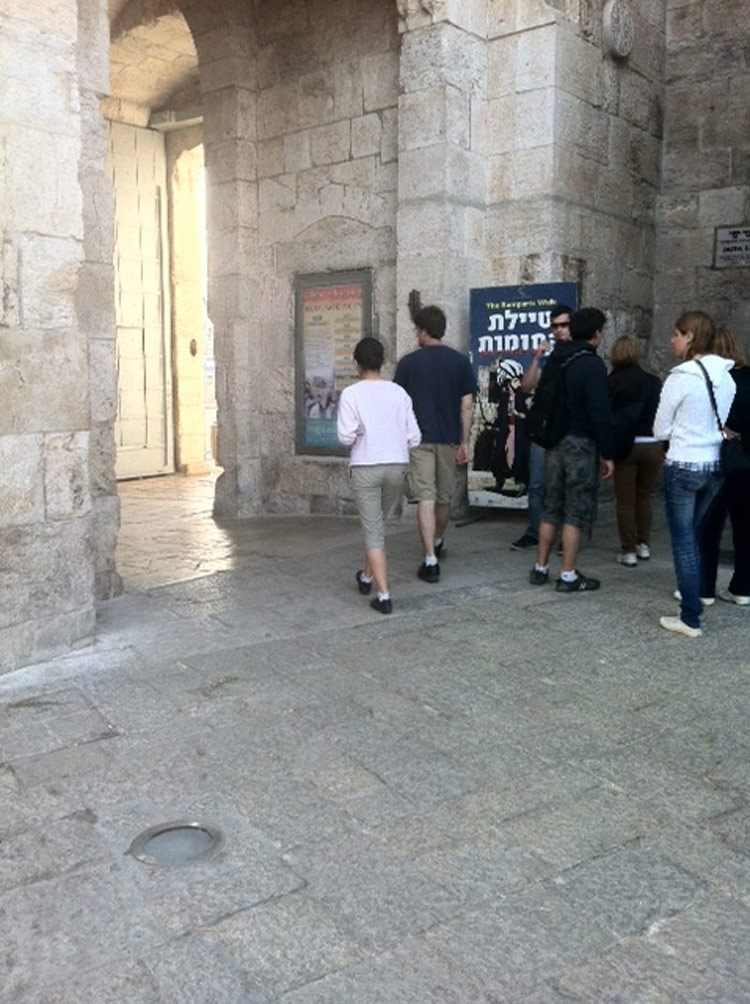Israel:Gap or moat: Unterschied zwischen den Versionen
Aus goethe.de
K (hat „Gap or moat“ nach „Israel:Gap or moat“ verschoben) |
|||
| Zeile 14: | Zeile 14: | ||
A project by the [http://www.goethe.de/ins/il/lp/deindex.htm Goethe-Institut Israel] | A project by the [http://www.goethe.de/ins/il/lp/deindex.htm Goethe-Institut Israel] | ||
| − | Author: [[Gisela Dachs]] | + | Author: [[Israel:Gisela Dachs (Author) | Gisela Dachs]] |
| − | Photos: [[Noa Ben-Shalom]] | + | Photos: [[Israel:Noa Ben-Shalom (Photos) | Noa Ben-Shalom]] |
Version vom 12. Dezember 2012, 16:05 Uhr
However one thing is certain – it wasn’t Wilhelm II himself who ordered such an attack in advance, of which he is frequently accused, but the Turkish Sultan Abdul Hamid. In any case a new breach of the wall was created back then, which still represents one of the key entry routes into the Old Town today – thanks to Wilhelm II.
He is said to have ridden through the Jaffa Gate on white horses with the Empress. Later, unlike them, the British General Allenby dismounted from his horse for his victorious entrance on 9th December 1917, just as the pilgrims had been doing for centuries.
There is also a small monument commemorating the Emperor’s visit on Mount Carmel, which Wilhelm climbed after arriving in Haifa. The Templers had erected it in his honour. The English destroyed it in 1919. More than 60 years later it was restored and reinaugurated in the presence of the Kaiser’s grandson Prince Louis Ferdinand.German Traces in Israel
A project by the Goethe-Institut Israel
Author: Gisela Dachs
Photos: Noa Ben-Shalom

